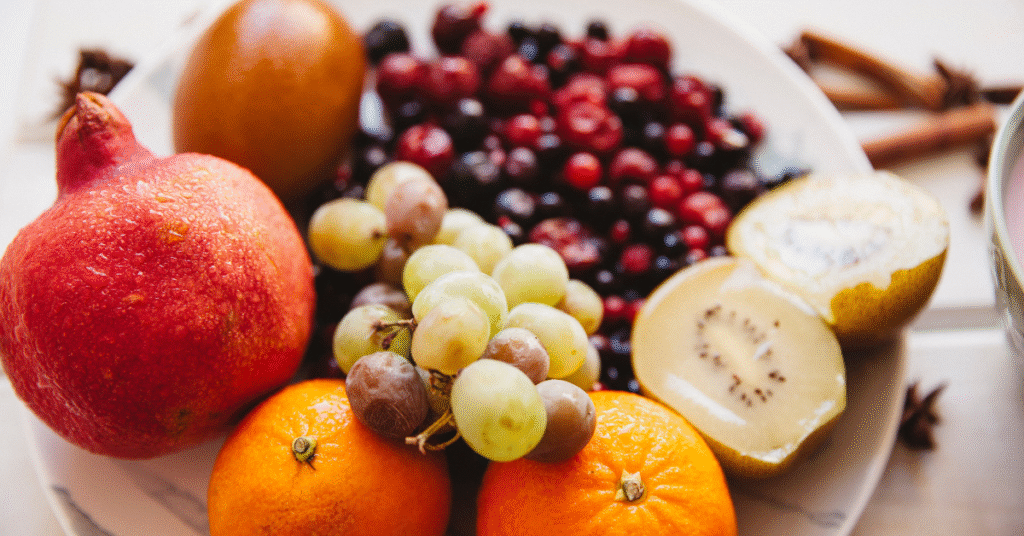
Winter often feels like a season of sluggishness, with chilly days and cozy nights tempting us to reach for comfort foods that weigh us down. I remember last January, curled up under a blanket, feeling like my energy had hibernated along with the bears. Then, I stumbled upon a vibrant mango at the grocery store, and it was like a burst of summer in the dead of winter. That moment sparked my obsession with tropical fruits and their power to keep us energized when the cold tries to sap our vitality. In this blog post, we’ll explore how tropical fruits can transform your winter, offering a delicious, nutrient-packed way to stay vibrant. From their health benefits to practical tips for incorporating them into your diet, this guide is your ticket to a more energized winter.
Why Tropical Fruits Are Winter Superstars
Tropical fruits, grown in sun-soaked regions, are nature’s answer to winter’s gloom. Think of pineapples, mangoes, and papayas—each bite is like a mini-vacation to a tropical island. These fruits are packed with vitamins, antioxidants, and natural sugars that provide a quick energy boost without the crash of processed snacks. According to Harvard Health, fruits rich in vitamin C, like oranges and guavas, bolster your immune system, which is crucial when winter colds are lurking. Their vibrant colors and flavors also lift your mood, combating the seasonal blues that affect millions, as noted by the National Institute of Mental Health. Plus, their high water content keeps you hydrated, a challenge in dry winter air.
But it’s not just about nutrition. Tropical fruits bring a sensory joy that makes healthy eating feel indulgent. I recall slicing open a ripe papaya last winter, its orange flesh practically glowing. The sweet, juicy taste was a reminder that healthy food doesn’t have to be boring. Whether you’re fighting fatigue or just craving something fresh, these fruits are a game-changer.
The Best Tropical Fruits for Winter Energy
Not all tropical fruits are created equal when it comes to winter wellness. Here’s a rundown of the top players, each with unique benefits to keep you energized:
- Mangoes: Known as the “king of fruits,” mangoes are loaded with vitamins A, C, and B-complex, which support energy metabolism. A study from the Journal of Nutrition highlights their antioxidant properties, which reduce inflammation and boost immunity. Their natural sugars provide a quick energy hit, perfect for a mid-afternoon slump.
- Pineapples: These juicy fruits are rich in bromelain, an enzyme that aids digestion and reduces inflammation, per Medical News Today. Their high vitamin C content and natural sweetness make them a refreshing pick-me-up.
- Papayas: Packed with vitamin C, folate, and fiber, papayas support digestion and heart health. The Mayo Clinic notes that their enzymes, like papain, help break down proteins, keeping you feeling light and energized.
- Guavas: With more vitamin C than oranges, guavas are immune-boosting powerhouses. They’re also high in fiber, which stabilizes blood sugar for sustained energy, according to WebMD.
- Bananas: A winter staple, bananas are rich in potassium and vitamin B6, which support muscle function and energy production. The Cleveland Clinic praises their portability and ability to fuel workouts.
- Kiwis: Don’t let their small size fool you—kiwis are bursting with vitamin C, fiber, and antioxidants. A study in Nutrients suggests they improve mood and energy levels, making them ideal for dreary winter days.
Each of these fruits brings something special to the table, from immune support to mood enhancement. The key is variety—mixing them up ensures you get a broad spectrum of nutrients.
Comparison Table: Tropical Fruits for Winter Energy
To help you choose the best tropical fruits for your winter diet, here’s a comparison of their key nutrients and benefits:
| Fruit | Key Nutrients | Energy Benefits | Best Use |
|---|---|---|---|
| Mango | Vitamins A, C, B6, antioxidants | Boosts immunity, quick energy via sugars | Smoothies, salads, snacks |
| Pineapple | Vitamin C, bromelain, manganese | Aids digestion, reduces inflammation | Fresh slices, grilled desserts |
| Papaya | Vitamin C, folate, fiber, papain | Supports digestion, sustained energy | Breakfast bowls, smoothies |
| Guava | Vitamin C, fiber, antioxidants | Stabilizes blood sugar, boosts immunity | Fresh, jams, or juices |
| Banana | Potassium, vitamin B6, carbs | Fuels muscles, quick energy | Pre-workout snack, smoothies |
| Kiwi | Vitamin C, fiber, antioxidants | Improves mood, sustained energy | Fresh, yogurt topping, salads |
This table makes it easy to see why these fruits are winter must-haves. Whether you need a quick boost or long-lasting energy, there’s a fruit for every moment.
How Tropical Fruits Boost Energy: The Science
The energy-boosting power of tropical fruits lies in their nutrient profiles. Carbohydrates, particularly natural sugars like fructose, provide quick energy, while fiber slows digestion for sustained fuel. Vitamins like C and B6 play a role in energy metabolism, helping your body convert food into usable energy, as explained by the National Institutes of Health. Antioxidants, abundant in fruits like mangoes and kiwis, reduce oxidative stress, which can cause fatigue. For example, I once swapped my usual coffee for a mango smoothie and felt a steadier, longer-lasting energy boost without the jitters.
Hydration is another key factor. Winter’s dry air can dehydrate you, leading to sluggishness. Fruits like pineapples and papayas, with water content above 80%, help keep you hydrated. Plus, their bright flavors stimulate saliva production, signaling your brain to perk up. It’s like a natural alarm clock for your body.
Incorporating Tropical Fruits into Your Winter Diet
Adding tropical fruits to your winter meals is easier than you think. Here are some practical, delicious ways to make them a daily habit:
- Smoothies: Blend mango, banana, and kiwi with Greek yogurt for a nutrient-packed breakfast. Add a handful of spinach for extra vitamins without altering the taste.
- Salads: Toss pineapple or papaya chunks into a green salad with nuts and a citrus dressing. The sweet-tart combo is a flavor explosion.
- Snacks: Keep sliced guavas or bananas on hand for a quick pick-me-up. Pair with a smear of almond butter for added protein.
- Desserts: Grill pineapple slices or bake mangoes with a sprinkle of cinnamon for a healthy, warm treat that feels indulgent.
- Breakfast Bowls: Layer papaya and kiwi over oatmeal or chia pudding for a vibrant start to your day.
Last winter, I started adding kiwi slices to my morning yogurt, and it became a ritual that brightened my mood before the day even began. The key is to experiment—find combinations that excite your taste buds and fit your routine.
Sourcing Tropical Fruits in Winter
You might wonder how to get fresh tropical fruits when snow’s piling up outside. Many tropical fruits are imported year-round, thanks to global trade networks. Check your local grocery store or markets like Whole Foods for fresh options. Frozen tropical fruits are a fantastic alternative—they retain most nutrients and are often more affordable. Look for brands like Dole that flash-freeze fruits at peak ripeness. Farmers’ markets or specialty stores may also carry exotic varieties, especially in urban areas.
When selecting fruits, choose ones that are slightly soft to the touch (for mangoes and papayas) or vibrant in color (for pineapples and kiwis). Store them properly—bananas at room temperature, mangoes in the fridge once ripe—to maximize freshness. I learned this the hard way after letting a papaya go bad on my counter. Lesson learned: a little planning goes a long way.
Potential Challenges and Solutions
While tropical fruits are a winter boon, there are a few hurdles to navigate:
- Cost: Imported fruits can be pricey. Solution: Buy in bulk when on sale, or opt for frozen versions, which are often cheaper.
- Availability: Not all stores stock exotic fruits. Solution: Check online retailers or ask your grocer to order specific fruits.
- Sugar Concerns: Some worry about the natural sugars in fruit. Solution: Pair fruits with protein or healthy fats (like nuts) to balance blood sugar, as suggested by the American Diabetes Association.
- Allergies: Some people are sensitive to fruits like pineapple. Solution: Test small amounts first and consult a doctor if needed.
By anticipating these challenges, you can enjoy tropical fruits without stress.
FAQ: Your Tropical Fruit Questions Answered
Q: Are frozen tropical fruits as nutritious as fresh ones?
A: Yes! Freezing preserves most nutrients, though texture may differ. Frozen mangoes or pineapples are great for smoothies and retain their vitamin C and antioxidants.
Q: Can I eat tropical fruits if I’m watching my sugar intake?
A: Absolutely. Their fiber slows sugar absorption, preventing spikes. Pair with protein, like yogurt, for better blood sugar control.
Q: How do I know if a tropical fruit is ripe?
A: Look for vibrant color and slight give when gently squeezed. For example, a ripe mango smells sweet at the stem, while a pineapple’s leaves pull out easily.
Q: Can tropical fruits help with winter depression?
A: They can help! Their bright colors and nutrients like vitamin C and antioxidants support mood, as noted in studies from Psychology Today.
Q: Are there any tropical fruits I should avoid in winter?
A: Not really, but prioritize fruits in season for freshness, like citrus or bananas. Check for allergies, especially with exotic fruits like kiwi.
Conclusion: Embrace the Tropical Winter Glow
Winter doesn’t have to mean lethargy or bland meals. Tropical fruits like mangoes, pineapples, and guavas are your secret weapon for staying energized, healthy, and happy. Their vibrant flavors and nutrient density make them a joy to eat, while their health benefits—from immunity boosts to mood enhancement—make them a smart choice. Whether you’re blending a smoothie, snacking on kiwi, or grilling pineapple for dessert, these fruits bring a taste of summer to the coldest months. My own winter transformation, sparked by that fateful mango, taught me that small changes in diet can have a big impact on how we feel.
Ready to dive in? Start by picking one or two tropical fruits from your local store or freezer aisle. Experiment with recipes, share them with friends, or even host a tropical-themed winter dinner party. The possibilities are endless, and the rewards—a burst of energy and a brighter outlook—are worth it. So, grab a papaya, slice it open, and let its sunny vibes carry you through winter. What’s your favorite tropical fruit to beat the winter blues? Try it out, and let the season shine!
